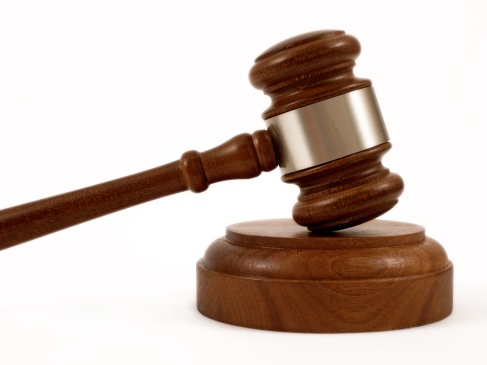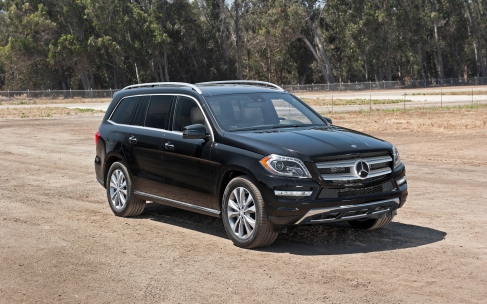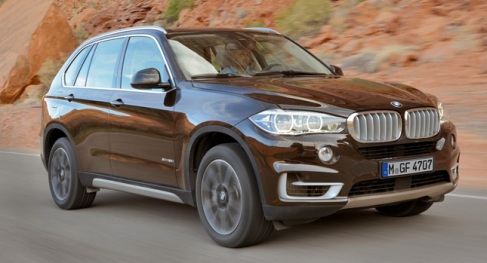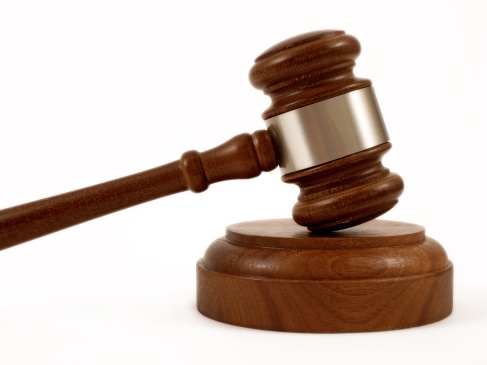No Victims, No Case!!!!
Independent Dealers/Brokers Please Post Solicitation’s From Franchised Dealers Who Have Solicited You To Pay Thousands Over MSRP (A Export Price) On The Models Below:
Don’t Ask Don’t Tell But Pay Way Over Retail Because We Want Our Piece!
The Fact is new car franchised dealers solicit brokers and independent dealers to sell their cars knowing that a select group may be sold to a 3rd party who may export them. Even though there is Nothing Illegal About Exporting Cars! They in fact price gouge and in many cases charge brokers/independent dealers as much as $15,000 over MSRP on Select Models. The Government is going to argue that new car dealers are victims of some grand scheme. Perhaps the government should be looking at the source. No
Mercedes Benz
GL Class
G Class
M Class
Land Rover
All Models
Porsche
Cayenne’s
BMW
X5
X6
Misc Models
Who Is The Victim????
No Victims No Case!
Independent Dealers/Brokers Please Post Solicitation’s From Franchised Dealers Who Have Solicited You To Pay Thousands Over MSRP (A Export Price) On The Models Below:
Don’t Ask Don’t Tell But Pay Way Over Retail Because We Want Our Piece!
The Fact is new car franchised dealers solicit brokers and independent dealers to sell their cars knowing that a select group may be sold to a 3rd party who may export them. Even though there is Nothing Illegal About Exporting Cars! They in fact price gouge and in many cases charge brokers/independent dealers as much as $15,000 over MSRP on Select Models. The Government is going to argue that new car dealers are victims of some grand scheme. Perhaps the government should be looking at the source. No
Mercedes Benz
GL Class
G Class
M Class
Land Rover
All Models
Porsche
Cayenne’s
BMW
X5
X6
Misc Models
Please Post any email’s from dealers soliciting you for cars at a gouged “Export Price” in a comment.
Dealerships Solicit Exporters to Move Inventory
Dealership Sales People and Managers when they have excess inventory or just want to meet their numbers for the month will contact exporters knowing what they plan to do with the cars. There are hundreds perhaps thousands of emails from dealerships asking “can you sell this car” or “these are cars i can get can your customers use these”. The export market supports the United States Automotive Market. A Mercedes Benz dealership has 10 new GL350 diesels in stock. In case you wondered they don’t sell in the USA and are about $85K USD. They sit on the lot for say 60 days. Most dealers floor plan their inventory. In other words every day they sit the dealer pays interest. Here’s the fun part. On a Mercedes Benz there is 7% mark up between MSRP and dealer invoice. Wait a minute there is another 5% in holdback. Total 12%. John Smith walks in and pays cash for the car at MSRP plus a dealer fee and local taxes and tags. You know the funds used to pay for the public school system. He reassigns the title to a broker dealer. The independent dealer broker sells it to some one else who in turns ships it out of the country and by chance the dealer is charged back maybe 8%. Maybe one in 5 get charged back for being exported. Who has really lost money? Last I checked 12-8=4% profit plus a dealer fee. That’s above the average profit per unit. Plus the dealer is no longer paying for a car that really doesn’t sell in the USA and what about the other 4 at a astonishing 12% return. The State pockets the sales tax and license fee’s and our kids get educated hopefully by good teachers with the help of the dealer broker tax revenue. Again who get’s hurt? Answer: No One! Wait everyone if broker independent dealers goes away.
Government fails to reveal that there is nothing illegal about automotive export
The Government has concealed from the courts the fact that there is ABSOLUTELY NOTHING illegal about exporting a NEW or USED Vehicle, and choosing to treat the various car dealerships as “victims” when they in fact are soliciting Automotive Brokers for assistance in moving their inventory.
Click Here to follow our facebook page to stay up to date on the news with this case
Related articles
- Government fails to reveal that there is nothing illegal about automotive export (exportautonews.wordpress.com)
- Federal probe of luxury car exports has Myrtle Beach area ties (thestate.com)
Join the coalition of the Independent Automotive Dealer Broker Legal Defense Fund Team (IADDF)
Stay posted on how to help fund a new coalition that will be spearheaded by a select group of Brokers and independent Dealers. Along with a legal team of Experts in this field. For further questions contact Joshua Widlansky of Padula Hodkin LCCP at: widlansky@padulahodkin.com or Dial 561-544-8900 or Ely Goldin from the firm of Fox Rothschild LLP at: egoldin@foxrothschild.com or Dial 610-397-6509. More Links to follow.!
US Takes a Wrong Turn on Auto Exports
One of the most interesting aspects of practicing international trade law is you never know what issues you’ll confront, particularly those that are really off-the-wall.
By way of illustration, it became public in April that the U.S. government is conducting a criminal investigation into companies — not automakers — that purchase vehicles from local dealers and export them. One of the more bizarre statements in the public pronouncement about the first prosecution was from the assistant U.S. attorney handling the case, who said it’s illegal to export new vehicles from the U.S.
There is, of course, no such ban. the question we keep coming back to is this: Why is the federal government involved in what is a civil dispute between automakers and dealers? Both sides, after all, have the resources to fight it out, so let them! By taking the tack they have, federal prosecutors have sided with automakers at the expense of the dealers and their buyers.
Who ends up hurt? The taxpayers! When dealers don’t make sales, their owners lose revenue, salespeople lose commissions, and the government at many levels loses tax revenue. How does any of that make sense?
Oh, and by the way, isn’t it grand that our own federal government is taking even more steps to ship additional jobs overseas by preventing American dealers from selling to foreign markets? Great way to help the economic recovery
Click Here To see the full article
Dealership Math Does Not Add Up!
Let’s do some basic math. First let’s visit this scenario. A Mercedes Benz dealership has 10 new GL350 diesels in stock. In case you wondered they don’t sell in the USA and are about $85K USD. They sit on the lot for say 60 days. Most dealers floor plan their inventory. In other words every day they sit the dealer pays interest. Here’s the fun part. On a Mercedes Benz there is 7% mark up between MSRP and dealer invoice. Wait a minute there is another 5% in holdback. Total 12%. John Smith walks in and pays cash for the car at MSRP plus a dealer fee and local taxes and tags. You know the funds used to pay for the public school system. He reassigns the title to a broker dealer. The independent dealer broker sells it to some one else who in turns ships it out of the country and by chance the dealer is charged back maybe 8%. Maybe one in 5 get charged back for being exported. Who has really lost money? Last I checked 12-8=4% profit plus a dealer fee. That’s above the average profit per unit. Plus the dealer is no longer paying for a car that really doesn’t sell in the USA and what about the other 4 at a astonishing 12% return. The State pockets the sales tax and license fee’s and our kids get educated hopefully by good teachers with the help of the dealer broker tax revenue. Again who get’s hurt? Answer: No One! Wait everyone if broker independent dealers goes away.
Government and AN’s blatantly FALSE statements that have little or no actual substance against the auto export industry
True Story
It’s absolutely astonishing that such a biased and untruthful article
was published by AN – a supposed credible source in the automotive industry.
However, there is a very different perspective to be told on this story.
Most of the article is written out of context, using inconclusive and in some instances blatantly FALSE statements that have little or no actual substance. Combined with the specific wording chosen by the author, it becomes apparent that this is clearly either a propaganda piece sponsored by the automakers, or the author was completely uninformed on this issue and has done zero fact checking prior to publishing this laughable article. Apparently AN’s editors are asleep at the wheel!
Exporting cars is not a “scheme”, nor is it a “black-market
industry”. In most cases, it is a legitimate business that has been around pretty much as long as the car itself. It’s a business which employs thousands of people across the country, generates tremendous revenue for everyone involved, including automakers, dealers, exporters, state/local/federal governments and which has allowed franchised dealers to reach sales numbers that previously could have only been imagined. Sure there might be some bad apples, but every industry has its share.
For example, let’s look at a quote from the article:
“U.S. Customs regulations only allow new vehicles to be
exported by their manufacturer, and still consider vehicles to be new if bought
for resale purposes”
I challenge the author, editor or anyone else reading these
comments to provide any supporting evidence indicating that exporting new vehicles is illegal. I’m talking about the actual LAW here, not your personal opinion (that means actual excerpts from the U.S. Code or Customs regulations). What your cousin Joe who works at the local dealership told you, or the propaganda put out by the automakers is not relevant.
Here’s a link to the US CBP site, describing the rules for exporting cars: http://www.cbp.gov/xp/cgov/trade/basic_trade/export_docs/motor_vehicle.xml
The real question everyone should be asking is why did these guys go through so much trouble just to buy some cars?? Anyone familiar with this business knows that they were forced to operate this way because of the anti-competitive and discriminatory policies the automakers have put in place, so they so they could sell the same cars for $50,000 more in other markets. By the way, that’s also called trade restriction and is a CRIMINAL offense under the Sherman Act. These automakers have already been fined hundreds of millions of dollars in Europe for the same exact practices, but the U.S. “Justice” Department is going after a few guys trying to make a living, instead of prosecuting the car companies for anti-trust violations? What did these guys actually do wrong, what crime was committed, who was harmed? Can anyone answer these questions? I really can’t see anything they did which was illegal, except what seem like some minor DMV infractions. It certainly wasn’t immoral or unethical. Is it wrong to buy goods and sell them for a profit? Aren’t these the free-market principles this country was built on?
Why would the government of a country facing such financial hardship, high unemployment rates and a perpetual trade deficit want to prohibit any goods from being exported – especially to China, with which we have the largest trade deficit? Export activity is absolutely vital to our economy, and is exactly the type of business that should be promoted by the government. Dealers are selling more cars, states are collecting additional tax revenue, jobs are being created, and billions of dollars are flowing back to the U.S. from China.
The NH case and this article spend a lot of time discussing the policies of the automakers and dealers, including topics like export restrictions, “charge-backs”, etc. But who cares about any of these things and why do they matter? These are internal dynamics of private companies, NOT U.S. LAW. All of these issues are between the dealer and manufacturer. Why are U.S. government agencies enforcing private contract matters of FOREIGN companies? Think about that for a
minute!
Don’t Ask – Don’t Tell
But why did the defendants need to go through this elaborate process just to export some luxury cars and make some money. The answer lies with auto manufacturers. Mercedes, Porsche, Lexus and others want to protect pricing in foreign markets.
Because supply, demand, and competition from other manufacturers vary by jurisdiction, they stand to make significantly more money per auto sold in these foreign jurisdiction and the export of less expensive identical models into these countries undercuts their profits. To protect their foreign pricing policies, many luxury car manufacturers prohibit U.S. dealers from selling new cars to buyers who intend to ship the cars overseas for resale. See Mercedes Benz’ Export Agreement Policy. But car dealers employ salespeople. And salespeople are in the business of selling cars.
So in many cases, as long as a buyer is not obvious about his intentions and as long as the dealer has plausible deniability about the possibility of export, a dealer will gladly sell a car to a buyer. But, if that buyer comes back to the same dealer ten times in one year and purchases ten identical black Mercedes Benz sedans, a dealership or its salesperson may have a difficult time maintaining plausible deniability with the manufacturer who may refuse to sell and/or “blacklist” the buyer.
Enter the straw buyers. Straw buyers are typically individuals who purchase new cars from dealers at the request of an exporter, like Ku. They are agents hired and paid by the exporter to purchase cars from dealers. They typically purchase one or two vehicles from a specific dealer with certified funds provided to them by the exporter (who either receives the money from a foreign purchaser or self-finances the acquisition). Most professional exporters inform buyers that they should not lie or make any factual misrepresentations to the dealer about their intention. Rather, the process generally works on a “don’t ask don’t tell basis” where neither dealer nor buyer discuss the purchaser’s ultimate plans. The dealer and salesperson are happy to make the sale and the buyer is happy to make the purchase. The automobile is titled in the straw buyer’s name who then drives it off the lot and to a destination. Once there, the car is transported to a port, cleared through customs for export, and shipped overseas via ocean carrier. The straw buyer receives a fee for their time and services.
Notably, there is nothing inherently illegal or unlawful about purchasing a car throughan agent. In most cases, the cars are purchased with clean funds, all sales taxes and stateregistration fees are paid, and the vehicles are titled and insured in full conformity with applicable state laws and regulations. The problem arises in allegedly false statements. In the New Hampshire case, the Government alleges that straw buyers were falsely registered as New Hampshire residents which enabled them to obtain New Hampshire driver’s licenses. These driver’s licenses probably helped the dealers maintain plausible deniability since a New Hampshire buyer purchasing a car from a New Hampshire dealerships raises fewer export suspicions than say a California buyer trying to purchase a car from New Hampshire. More importantly, however, the use of New Hampshire as a purchase jurisdiction probably lowered the exporter’s acquisition costs since the vehicles did not require mandatory car insurance for the short period between purchase and export and since New Hampshire residents who purchase New Hampshire cars do not have to pay sales tax. Therefore, the Government’s theory is the straw buyers were not real New Hampshirites and that the use of the U.S. postal system to establish allegedly false residency is mail fraud. Similarly, the declaration that a vehicle is “used” when they were supposedly “new” is also a misrepresentation which, according to the Government, violates the law.
Federal probe of luxury car exports
A luxury automobile dealership and at least one area man have been named in a federal investigation into an alleged scheme to export high-end cars to foreign countries through the use of straw buyers, according to civil complaint filed this week in federal court in Columbia.
The complaint was filed along with warrants to seize a dozen vehicles and two bank accounts belonging to companies in Charleston and Houston that intended to export the vehicles, according to court documents. Criminal charges have not yet been filed in the case, which involves agents from the U.S. Secret Service, the State Law Enforcement Division, the Richland County Sheriff’s Department and Columbia City Police.
Among those named in the complaint is Myrtle Beach Automotive, which sells BMW and Mercedes automobiles at its location on Jason Boulevard in Myrtle Beach. According to the complaint, Martin Burke – who allegedly recruited straw buyers – told investigators he was introduced to the Charleston exporters by a Myrtle Beach Automotive salesman. That salesman told Burke that he had been selling cars to the brokers through straw buyers for two years and “if you did it the right way” it would be O.K., according to the complaint.
Steve Rollins, general manager of Myrtle Beach Automotive, could not be reached for comment Friday. The complaint does not say where Burke lives.
Edward Sweet of Conway also is named in the complaint as the alleged straw buyer of a $70,528 Porsche Cayenne from a dealership in Columbia. Sweet could not be reached for comment.
Automobile manufacturers generally prohibit the sale of cars in the U.S. to people who intend to export them for sale in another country, and there are stiff financial penalties for dealerships that knowingly sell their cars for that purpose. To get around those rules, some exporters use straw buyers – people who pretend the car is being purchased for their personal use. Exporters give the straw buyers money to purchase a vehicle and the automobile is then transferred to the exporter after the sale. Exporters typically pay each straw buyer a fee for making the purchase.
Exporters work to get around the rules because luxury cars cost much more in countries such as China – where these automobiles were headed – than in the U.S. The exporters can sell cars to foreign customers for less than it would cost to purchase the same car in that country, yet still make a profit. The scheme, which usually involves counterfeit titling of automobiles, often leads to mail fraud and wire fraud charges against the perpetrators.
Burke told investigators that he recruited Sweet to be the straw buyer for the Porsche, according to the complaint. Burke – who said he and his wife manage beach rental properties for a living – told investigators he also recruited family members to purchase eight luxury BMWs for the exporters.
According to the complaint, Burke drove Sweet to the Columbia dealership on April 13 and then left Sweet at the dealership. After the sale, federal agents followed Sweet for about a mile to a Lowe’s hardware store parking lot, where Burke was waiting. About an hour later, a vehicle transport truck arrived and the driver – along with Burke and Sweet – started to load the Porsche onto the truck. Federal agents stopped the men, seized the vehicle and learned the Porsche was supposed to be taken to a port in New Jersey, according to court documents.
Alex Turkayev – owner of Charleston-based Automotive Export, one of the exporters named in the complaint – told a federal agent that a $60,000 BMW in the U.S. would sell for about $160,000 through a traditional car dealer in China, because of that country’s high tariffs. Turkayev said salesman at several dealerships knew about the scheme and would contact him on a regular basis to let him know about new inventory, according to court documents.
In addition to the Porsche that Sweet purchased, federal agents have seized 11 luxury cars they believe are part of the export scheme, including another Porsche Cayenne, a pair of BMW X5s and eight Mercedes 350 and 450 models. Nearly $183,000 was seized from the exporters’ bank accounts.



